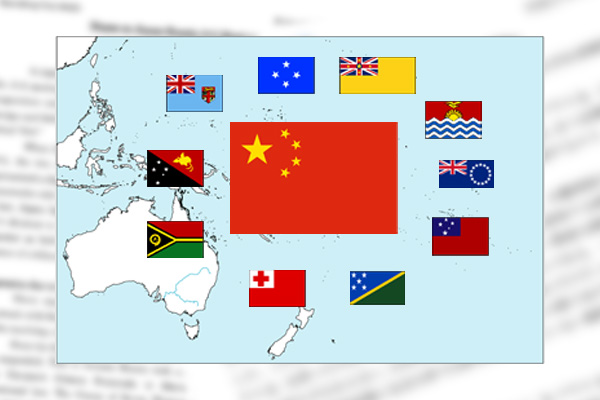The Solomon Islands and Kiribati in the South Pacific severed diplomatic relations with Taiwan and established official relations with China. Encouraged by its successful money diplomacy, China is likely to enhance its efforts to internationally isolate Taiwan. Geopolitically, China will accelerate its advance into the South Pacific, intensifying its rivalry with the United States in the region.
Pacific nations established ties with China
Of the 14 Pacific island nations, the number of those having diplomatic relations with China has increased to 10, with the remaining four retaining official relations with Taiwan. The number of countries having diplomatic relations with Taiwan in the world has declined by seven to a record low of 15 since Tsai Ingwen became president of Taiwan three and a half years ago.
China reportedly pledged $500 million in financial aid, almost five times more than Taiwan’s past support, in exchange for the diplomatic relations with the Solomon Islands. The Taiwanese foreign minister has revealed intelligence reports saying China has promised a grant to Kiribati for purchasing several civilian aircraft.
As the Solomon Islands, relatively populous among Pacific island nations, has sold out to China, it is speculated that the remaining four smaller countries including Nauru could follow suit in a domino effect.
Among the four, the parliament in Tuvalu has ousted its pro-Taiwan prime minister in a move that could change in its foreign policy. In Palau, parliamentary speaker who is involved in a hotel project with Chinese partners has become an advocate of switching recognition from Taiwan to China. In the Marshall Islands, lawmakers supporting a plan to establish a special economic zone proposed by a Chinese investor have launched a no-confidence vote against the president who is friendly to the U.S. and Taiwan, although the president has narrowly survived the vote. These developments suggest the domino effect might occur.
Japan-U.S.-Australia-Taiwan alignment is required
Pacific island nations are an easy target for China’s Belt and Road Initiative which extends to the South Pacific. China has taken advantage of infrastructure investment and economic aid for increasing influence on countries with which it has diplomatic relations.
The BRI contributes to China’s military expansion as well. In Vanuatu, China has renovated the Luganville port and could use it for military purposes. The port’s water depth is said to be 25 meters, deep enough to accommodate even a U.S. aircraft carrier. China has cut a $50 million deal with Tonga to lease access to an equatorial geostationary orbit that experts say would be required for China to use its BeiDou satellite positioning system, similar to the U.S. global positioning system, for military purposes including missile guidance.
Holding the key to the fate of the U.S.-China competition in the South Pacific will be the Federated States of Micronesia, the Marshall Islands and Palau, which have signed compacts of free association with the U.S. individually to provide the U.S. military with unfettered access to their territories. Among the three freely associated states, the FSM alone has diplomatic relations with China. The FSM president emphasizes that its cooperation with China is purely economic.
If China builds military footholds in the three island nations accounting for large part of the “South Sea Islands” that had been under Japan’s control till World War II, the U.S. would have to fundamentally revise its Pacific military strategy. Japan shares security interests with the U.S., Australia and Taiwan and should cooperate with them to prevent the three freely associated states from leaning towards China through the implementation of the free and open Indo-Pacific vision.
Yasushi Tomiyama is a senior research fellow and Planning Committee member at the Japan Institute for National Fundamentals and a former foreign news editor and bureau chief in Washington, D.C., London and Bangkok for the Jiji Press.


